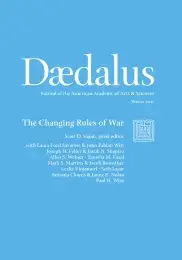Just War Theory & the Conduct of Asymmetric Warfare
A central element of the dominant view of just war theory is the moral equality of soldiers: combatants have equal rights to wage war against one another and are entitled to certain protections if captured, without regard to which side's cause of war is just. But whether and how this principle should apply in asymmetric armed conflicts between states and nonstate groups is profoundly unsettled. I argue that we should confer war rights on fighters for nonstate groups when they are engaged in violence that has risen to the level of armed conflict, and when the state against which the war is being waged is not entitled to assert its monopoly on the legitimate exercise of force, either because 1) the nonstate group has established sufficient control over territory to assert its own governing authority; or 2) because the group is located abroad. Conferring war rights on nonstate fighters does not, however, permit them to engage in acts that violate the laws of war. Fighters who commit such violations are individually subject to prosecution without regard to their group's entitlement to war rights.
The notion of the moral equality of soldiers arises from traditional just war theory’s embrace of a “dualism of our moral perceptions,” under which we distinguish between the justice of recourse to force (jus ad bellum) and the justice of the conduct of war itself (jus in bello). This separation means that an unjust war of aggression can be fought by just means, and a just war of self-defense can be fought unjustly. Because soldiers fight largely out of a sense of loyalty and accept their particular side’s representations about the justice of its cause, the moral status of individual combatants, in the words of Michael Walzer, “is very much the same. . . . They face one another as moral equals.” It follows that soldiers, regardless of which side they fight for, have equal moral standing to invoke the special rights that apply in wartime. To put it plainly, soldiers in wartime possess “the equal right to kill.”1 . . .
To read the full essay, access the PDF.
